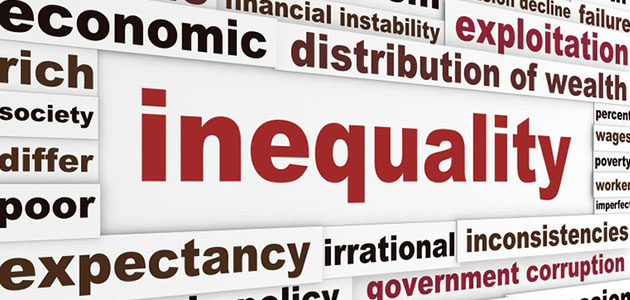13 February 2014
God, Mammon and the Debate on Inequality
by Nigel Smith
The headline above recently grabbed my attention. As I read on, Kevin Watkins insightful exploration of the intersection between theology, economics and social issues impressed me with both its candour and clarity of perspective. In his thoughtful piece, he draws on the proliferation of recent attention to inequality as a core cause of both poverty and social ills. When the Pope, the corporate supermen at Davos and the UN are all talking about it, maybe we ought to pay attention?
What is the issue at stake? Inequality (in blunt terms the distance between the rich and the poor) has been rising rapidly over the past 15 or so years. This is a worldwide phenomenon and not just a ‘wealthy country’ issue. Worryingly, New Zealand’s level of inequality has increased faster than that of most other OECD countries. One statistic that captures the kiwi situation starkly but well is the following:
“The top 1 percent of adults own three times as much of the country’s wealth as the entire lower half put together” (http://www.inequality.org.nz/ )
Watkins argues that this is a serious problem, and that the Pope and other commentators are right to focus on it. But other voices employ what I consider to be a theological sleight-of-hand in arguing that focusing on the wealth of others, of making such comparisons is an unhelpful approach. “Thou shalt not envy”, they intone. Backed up by economic arguments that sound suspiciously like the much-lampooned ‘trickle-down’ theory, they suggest that the only way forward is to maintain equality of opportunity – leave the outcomes alone as they will inevitably (and appropriately) reflect the differential contributions of individuals to the economy as a whole.

I am neither an economist nor a theologian, and while I lean towards the conclusions Watkins makes, I’m not out to make that particular case here. The original article has many links that provide a good jumping off point for that quest.
What I found intriguing was the way that both perspectives are grounded theologically, at least insofar as they draw upon biblical themes to provide their justification. “Covet not” vs “love your neighbour” might caricature the two approaches sufficiently well for my purposes here. While Watkins’ article concludes with a call to global action against inequality on a macro scale, I wonder whether reflection on these two divine commands on a more personal level might be where more of us, the ordinary people, can begin to engage.
What does loving my neighbour mean when I choose how to vote? Should I recycle or not? Should I buy imported goods or NZ goods? How much electricity should I consume? What does not coveting mean when I decide what kind of clothes to wear, which political party to support, how to share in community without gossip, or how to build my career?
This year is an election year. Inequality in New Zealand is a pressing issue. I believe it is either a cause, or a symptom that in turn becomes a cause of many of our most heinous social issues. These same issues will be the focus of the political campaigns that will be rolled out (once get past the flag redesign ….!). So keep your eyes and ears peeled. Hear the underlying sub-text in the messages.
Love your neighbour/Do not covet.
Which are you drawn most closely to?
